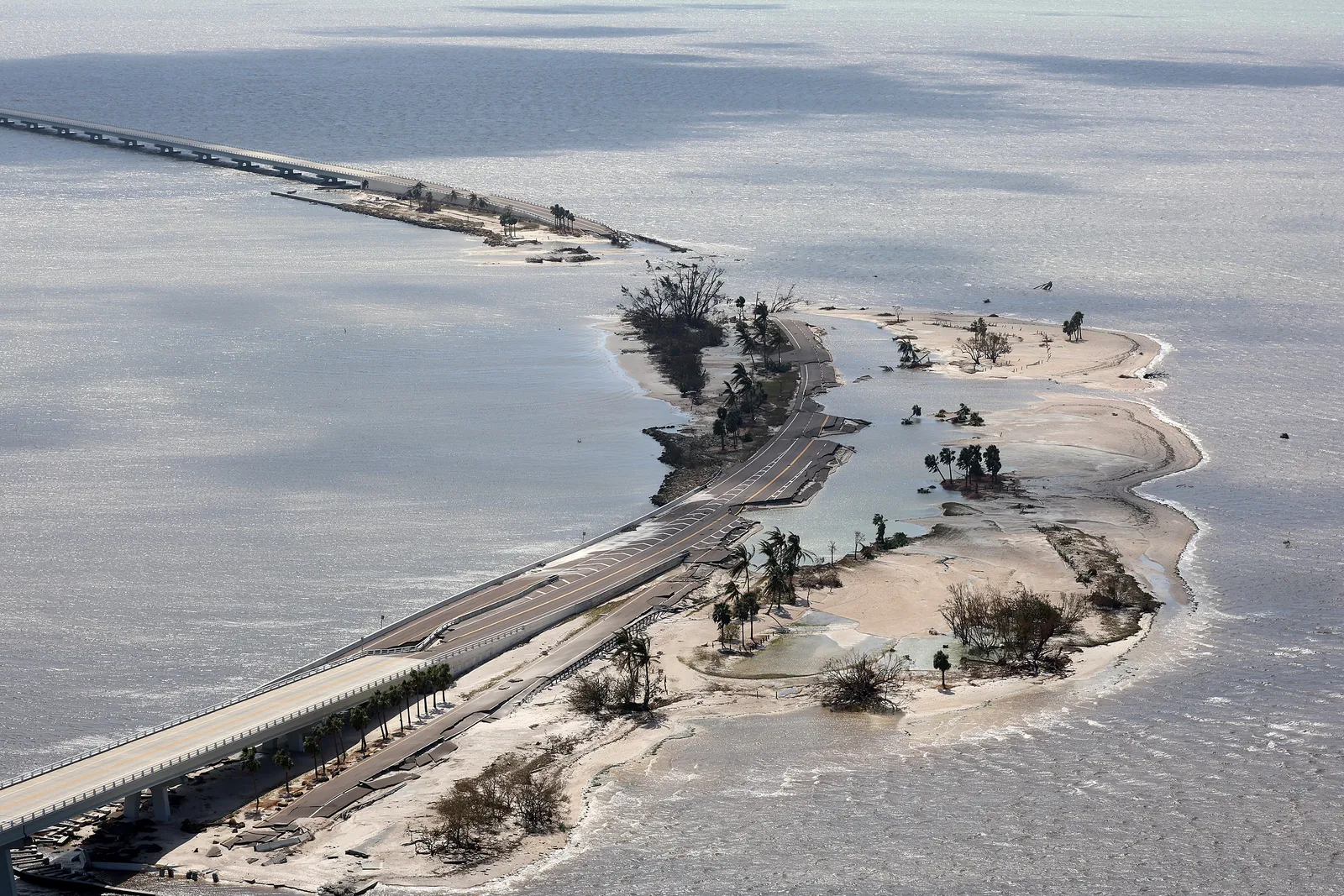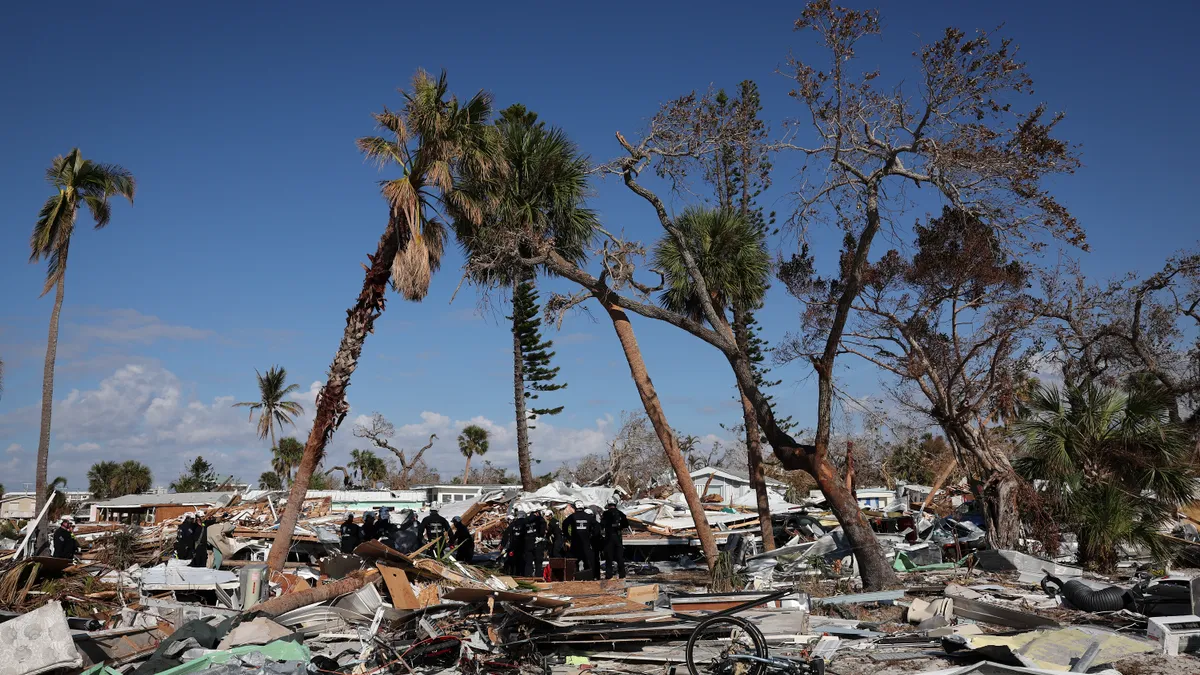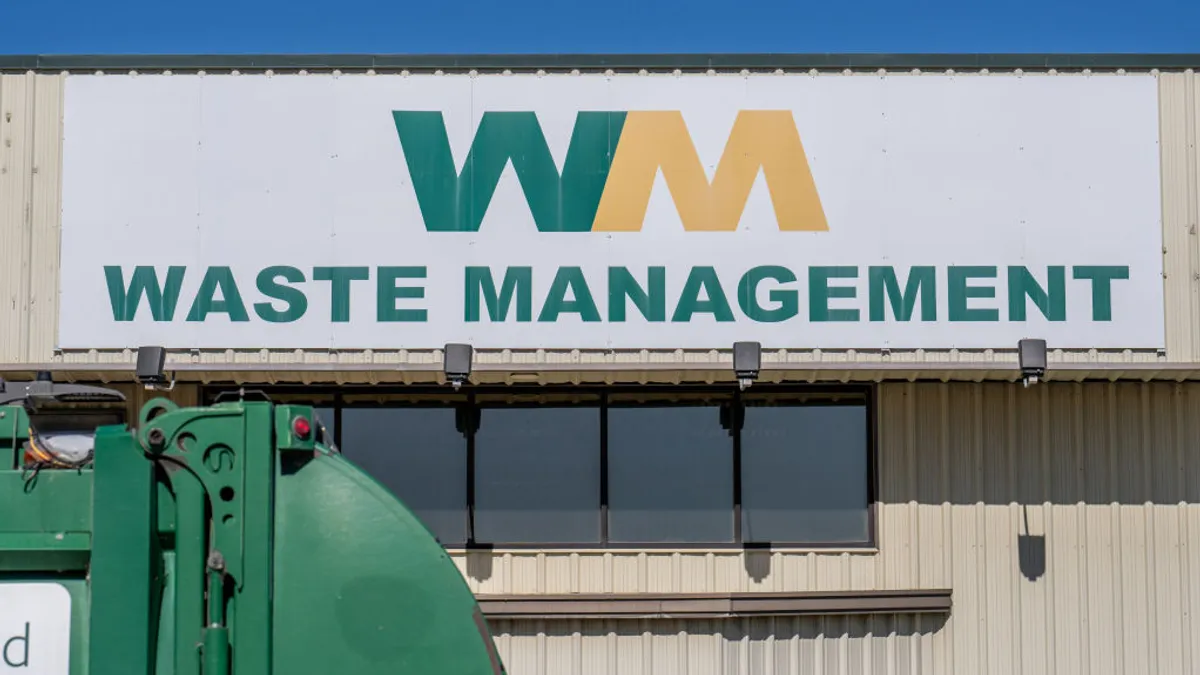In the month surrounding Hurricane Ian walloping the west coast of Florida, waste haulers in the region prepared for its landfall and worked to restore service in the shaky aftermath.
While service has varied county-by-county, trash collection has been back up and running and recycling is largely back, including in Lee County as of Monday. Still, a Friday update from Charlotte County said that trash collection was falling behind schedule, in part due to high volumes. As for the lengthy process of cleaning up storm debris, counties typically have separate contracts with different vendors than their everyday curbside waste haulers.
“There's been great cooperation and partnership with the cities and counties that we serve, and everybody's rowing in the same direction towards recovery,” explained Dawn McCormick, director of communications and government affairs for WM in Florida.
“Our first priority was obviously to help our people, make sure that they and their families were safe, and that they could have housing if their homes were unlivable. And then obviously we turn to our customers in our communities. But I think we're all very gratified to see that we're servicing our customers and getting close to being on schedule," she said last week.
Haulers with operations around the hard-hit Fort Myers area say experiences with past storms helped them prepare for this one. A lot has been learned since 2004’s Hurricane Charley, said Waste Pro Chief Operating Officer Keith Banasiak — a previous benchmark for intense Southwest Florida storms.
Waste Pro, which is headquartered in Florida, booked hotel room blocks in advance. A significant portion of its workforce experienced either major or minor damage to their homes, and some lost cars. The company also sought to procure fuel, water and ice ahead of time. It mobilized food, generators and other resources for employees. “Obviously, they're the number one catalyst to getting garbage picked up for us,” Banasiak said.
While Hurricane Ian was a historic storm, Waste Pro is no stranger to inclement weather. “If you look at our footprint” through Louisiana, Alabama, Florida and South Carolina, “we’re pretty much a storm target no matter where we’re at. So we expect that we're going to have these events,” Banasiak said.
However, Waste Pro doesn’t explicitly budget for storms and costs escalate when one hits. One cost the company is currently facing is replacing thousands of carts swept up or damaged during the storm. The company estimates it will have to replace between 20,000 and 25,000 carts in Lee County.
Not being able to collect from carts like normal makes typically automated collection less efficient. Another source of slowdowns in the storm’s aftermath was damaged roads and non-operational traffic lights. And once trucks arrived at a waste-to-energy facility or landfill, there were long lines to dump, which had a domino effect on pickup schedules.
These disruptions come amid increased trash volumes; loss of power during the storm leads to throwing away a lot of spoiled food, for example. As Waste Pro restarts recycling, there’s an understanding that, at first, recycling will likely be pretty contaminated with extra trash, Banasiak explained.
As for yard waste, Waste Pro doesn’t expect to restart service for another 30 to 60 days, since most yard waste today is likely better collected as storm debris. Once it does restart, Waste Pro expects heavy volumes, especially considering that some seasonal residents may not have even returned yet to begin cleaning up.
WM says it has been similarly focused on ensuring employees are alright and getting service back to normal while dealing with damaged infrastructure, McCormick, explained.
The company services some hard-to-reach areas, including Sanibel and Captiva Islands. In recent weeks it was difficult to transport dumpsters due to damage to the connecting road to the mainland, particularly as there were many other services seeking to get to islands by barge, including power trucks.

Additionally, a WM Fort Myers Beach facility was rendered unusable, and the company restaged its operations for Lee County at its nearby Florida training center.
"Where people are trying to recover and get back to a new normal, we're there for them and they're very happy to see us. It's nice to drive down the street and have people be able to see regular service because we're just another sign that things are gonna be okay,” McCormick said.
Even with recent progress, Florida has a long cleanup ahead. “I think just the biggest thing is keeping employee morale up, keep employee hours in line. We can work our employees 70 hours, 80 hours if we wanted to ... There’s work, but they have to have rest. They've got their own houses to maintain, right?” Banasiak said. “It's not going to be overnight. Everybody's gonna have to have patience.”



















